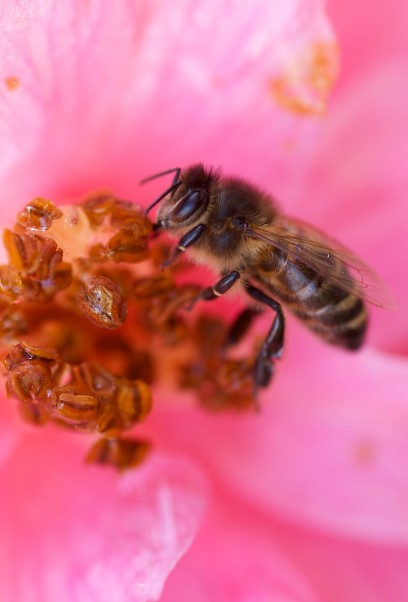
The Kilkhampton Apiary
We completed a Beginners’ Course run by the Holsworthy Branch of the Devon Beekeepers Association during the winter of 2010/2011 and started keeping our own bees in April 2011. We have learned a lot since then and have also formed some views of our own about the world of beekeeping.
Exploring the World of Beekeeping
Together with the huge enthusiasm, skill, and willingness to help that exists in the beekeeping community, there also exists the schismatic attitudes that will always be present in an activity that attracts such a diverse group of people and personalities. No surprise really – beekeepers are just people like any other and different people will always have different views and different idea. This is fine when such abundant variety leads to healthy debate but not so fine when entrenched opinions stifle and confuse discussion and writings.
Finding Common Ground in the Beekeeping Community
We sense a situation in the beekeeping world where opposing views are leading to people taking sides and in the process losing sight of some of the fundamental reasons behind why we keep bees. We recently saw reference in a USA web site to what the writer describes as the “Beekeeping Taliban.” A little extreme perhaps but the message he was getting across was that there does exist within beekeeping world groups who insist that the old ways and traditional teachings are best and that everything new should be treated, at best, with an unhealthy suspicion. This group of beekeepers expounds the use of beehives and methods first used at the end of the 19th century with the aim of manipulating bee hives for the more efficient harvesting of honey. These methods and associated equipment have of course been developed and brought up to date through the years but the basic principles remain unchanged.
Experiencing the Joys of “Natural” Beekeeping
This attitude infuriates a newer breed of beekeepers who are promoting the keeping of bees for different reasons than maximising honey production, and who want to embrace different, and in their eyes, more sustainable methods of beekeeping. These focus more on the overall environmental benefits of the honey bee where the harvesting of honey is a bonus rather than a reason for keeping bees. These environmental beekeepers promote the use of ancient and “third world” beekeeping methods improved with the benefit of modern materials and scientific knowledge. This group likes to be called “natural beekeepers”.
Understanding the Wildness of Bees and Our Part in Its Care
We think that both camps may have lost sight of the fact that the bee remains a wild creature and that whilst we can always try to give nature a “helping hand”, wild creatures will always remain wild and therefore all beekeeping is in effect “natural” beekeeping. The challenges, problems and rewards therefore remain the same, whatever beekeeping creed we may follow. Being a free-thinking sort of bunch at WCS, we have decided that in our own apiary, we will establish a number of different beehives and beekeeping methods so that we can learn for ourselves the merits and faults of the various regimes. We are sure that some of the lessons will be hard ones, but we are equally sure it will be a very satisfying and beneficial experience. And if we can share this experience with other interested beekeepers or potential beekeepers, so much the better. You are most welcome to contact us if you have an interest in learning more about our beekeeping project.
The Drone-Laying Queen Research Project
Westland Countryside Steward’s donated £1000 to help in the research project to investigate infertility in honey bee queens. Read more
